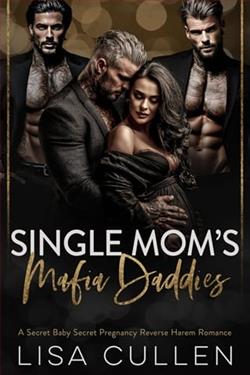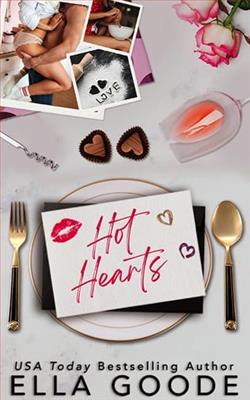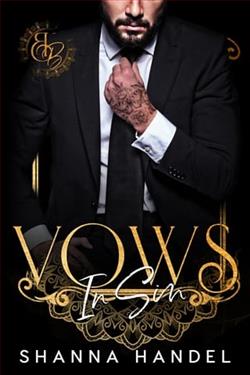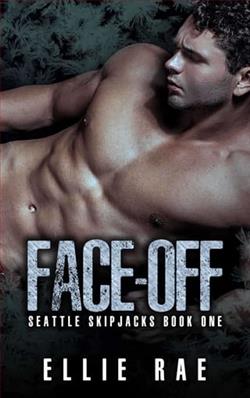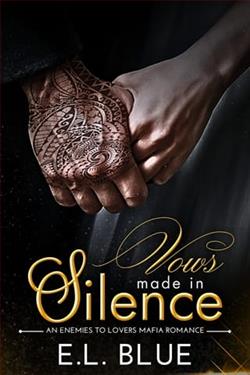Page 3 of Jackie
“And he admired Lawrence, unlike most of the French.”
“Who still blame Lawrence for the breakdown of French imperial power in Syria.”
“Exactly. Malraux was no false hero.”
This stops him for a moment, like the words sink in deeper than I intend. I remember then what I’d heard about his older brother, Joe Kennedy. How Joe was the one destined for politics. He was a Navy pilot, killed in action. His plane blown up over the English Channel.
It chills me for a moment. It’s sudden and violent, that kind of loss; I soften toward him.
Martha and Charley are talking to other guests now.
“Do you read French?” Kennedy says.
I tell him that when I was a child, my mother used to make us speak French at dinner. We’d play a game with matches. Each of us started with ten. If you said a word in English, you’d throw a match away. Whoever still had a match at the end won.
“Did you usually win?” he asks.
I always won. I don’t tell him this. I don’t have to. He knew before he asked.
“My mother played French records to try to teach us French,” he says.
“Did it work?”
“What do you think?”
“Do you always answer a question with a question, Congressman?”
Once, on an elementary school report card, my teacher wrote: Jacqueline is a darling child, the prettiest little girl, very clever, very artistic, and full of the devil.
Be more ladylike, my mother always told me. Less witty. Less know-it-all. Less. Make a man feel he’s smarter than you. Men don’t like it the other way around.
For the rest of that night, I take more care. I lob questions to Jack Kennedy and the other men about Joe McCarthy’s Un-American Activities Committee, the Rosenberg case, and President Truman’s recent dismissal of General MacArthur. What is your view? Oh, how brilliant! I would never have seen it that way.
Jack Kennedy seems to know all sorts of trivia about every person in the room. He asks Pat Roche about her uncle who sits on the Atomic Energy Commission. He asks Jeff about a mutual friend from Palm Beach. He is politicking, almost like he can’t help it.
At the same time, he seems oddly nervous, constantly touching the pocket of his sports coat or pushing back his hair. The hem of his pants hovers above his ankles. He’s at once detached and weirdly self-conscious. He doesn’t rest on one person or topic for long. He seems easily bored. His sense of humor reminds me of my father’s.
I sip my drink. The ice cubes, softened, clink against the glass.
This time of year—spring—when I was a child, we’d pack up the apartment in New York and move to Lasata, my grandparents’ house in East Hampton—stables for the horses, brass names on the stalls, the tennis court, a grape arbor. My grandmother’s garden wound through the boxwoods. You’d turn a corner and come upon a statue or a sudden stretch of daisies and bachelor buttons. My grandmother would glide through the garden rows in her long dress and sun hat, a basket over her arm with her spade and shears. She’d name the types of roses for me, their English names, Latin names, while my grandfather, in his high collar and brown tweed jacket, roared down the gravel driveway, heading to town in his old red Nash convertible. I’d glimpse him as he whooshed by, his mustache waxed to unyielding points. He kept his hearing aid off as he drove; he loved to feel the vibration of the floorboards and how the wheels took the ruts in the road. I read poetry with him in the afternoons when I came home from swimming at the Maidstone Club. Once, he came to see me ride in a show at Madison Square Garden. He jumped up and down in the stands, yelling at the horse, cheering me on. His nickname was “The Major,” and when he died, the loss left cracks through my heart.
I turn my wrist, quietly check my watch. After 8:00. Soon Martha will corral us inside for casserole—chicken and peas, perhaps—pressed napkins and wedding china. I’ll make it through dinner, then leave directly after. Plead a headache. I don’t like being set up with Jack Kennedy, I’ve decided. I appreciate his intelligence, of course, and sense of humor, but there’s something about the way he looks at me, like he thinks he can just peel me open. I don’t like the flush of heat in my face, that sense of my skin alive. It’s how he looks at every woman, and I don’t like that.
“Have you read the new Faulkner?”
I glance around. Hickey is leaning in to whisper something to Loretta.
“Jackie?”
“What?”
And he is there, that amused look again, like it’s all a game and would I like to play? I feel my pulse race.
“Have you read the new Faulkner?” he says again.
“On my nightstand, I think. A bit down the stack.”
“After?”








